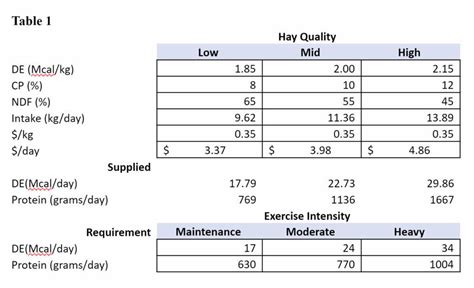Optimize Your Horse Feed Budget: Saving Money Without Sacrificing Health
Feeding your horse can be a significant expense, but it's crucial for their health and performance. Optimizing your horse feed budget doesn't mean skimping on nutrition; it means making smart choices to maximize the value of your feed dollars. This guide will help you navigate the complexities of horse nutrition and develop a feeding plan that's both affordable and effective.
What are the biggest expenses in horse feeding?
The largest component of most horse feed budgets is undoubtedly the feed itself. This includes hay (the foundation of most equine diets), grain (supplements to provide extra energy and nutrients), and commercial feeds (pellets or cubes designed for specific needs). Other significant expenses can include supplements, like vitamins and minerals, and veterinary care resulting from nutritional deficiencies. Finally, the cost of storage for hay and feed should also be considered, particularly if you need additional structures or space.
How can I reduce my horse feed costs without compromising quality?
Reducing feed costs effectively requires a multi-pronged approach:
1. Maximize Hay's Role:
- High-quality hay is key: Invest in good-quality hay (preferably tested for nutrient content) as the base of your horse's diet. Good hay reduces the need for expensive grain supplements.
- Proper hay storage: Storing hay correctly prevents spoilage and waste, preserving your investment.
- Hay analysis: Knowing your hay's nutritional profile helps you adjust grain and supplement amounts appropriately, preventing overfeeding and saving money.
2. Strategic Grain Feeding:
- Understand your horse's needs: Only feed grain if necessary to meet your horse's energy and nutrient requirements. Many horses, particularly those in light work, can thrive on hay alone.
- Choose the right grain: Opt for grains that are cost-effective and meet your horse's specific needs (e.g., oats for energy, beet pulp for fiber). Avoid unnecessary additives.
- Measure accurately: Avoid wasting grain by using a weight scale or measuring cup to ensure accurate portions.
3. Smart Supplement Strategies:
- Targeted supplementation: Don't over-supplement. Only use supplements if your horse has a proven deficiency identified through blood work or a veterinarian's recommendation.
- Cost-effective options: Explore cost-effective options such as readily available vitamins and minerals instead of expensive proprietary blends.
- Consider home-grown options: If you have the space and resources, growing your own hay or even certain vegetables can potentially save money in the long run.
4. Managing Pasture Access:
- Maximize pasture utilization: Rotating pastures allows for better grass growth and reduces overgrazing, leading to a more consistent and cost-effective forage supply.
- Careful pasture management: Proper pasture management practices, such as weed control and fertilization, improve forage quality and reduce the need for supplemental feed.
5. Bulk Buying and Storage:
- Buy in bulk (when possible): Purchasing feed in bulk often results in cost savings, but ensure you have adequate storage space to prevent spoilage.
- Optimize storage: Proper storage helps maintain feed quality and minimizes waste. This includes protection from moisture, pests, and rodents.
What are some common mistakes to avoid when trying to save money on horse feed?
- Sacrificing quality for price: Cheap hay or grain is often low in nutrients, leading to nutritional deficiencies and potentially costly health problems.
- Ignoring your horse's individual needs: Every horse is different. A generic feeding plan may not meet your horse's specific energy and nutritional requirements.
- Overfeeding: Overfeeding leads to wasted feed and potential health issues like obesity and laminitis.
- Poor storage practices: Improper storage leads to spoilage and waste, nullifying any cost savings.
- Not consulting a vet or nutritionist: Seeking professional advice ensures your horse receives the proper nutrition while optimizing your budget.
How can I get the most out of my horse's feed?
Regularly monitor your horse's body condition score (BCS) and adjust their feed accordingly. A good BCS indicates proper nutrition and efficient feed utilization. Also, keep an eye on their manure; its consistency can offer clues about digestive health and the effectiveness of your feeding plan.
By employing these strategies, you can effectively optimize your horse feed budget while maintaining their health, well-being, and performance. Remember, consulting with your veterinarian or an equine nutritionist can provide personalized advice and further optimize your feeding program.

